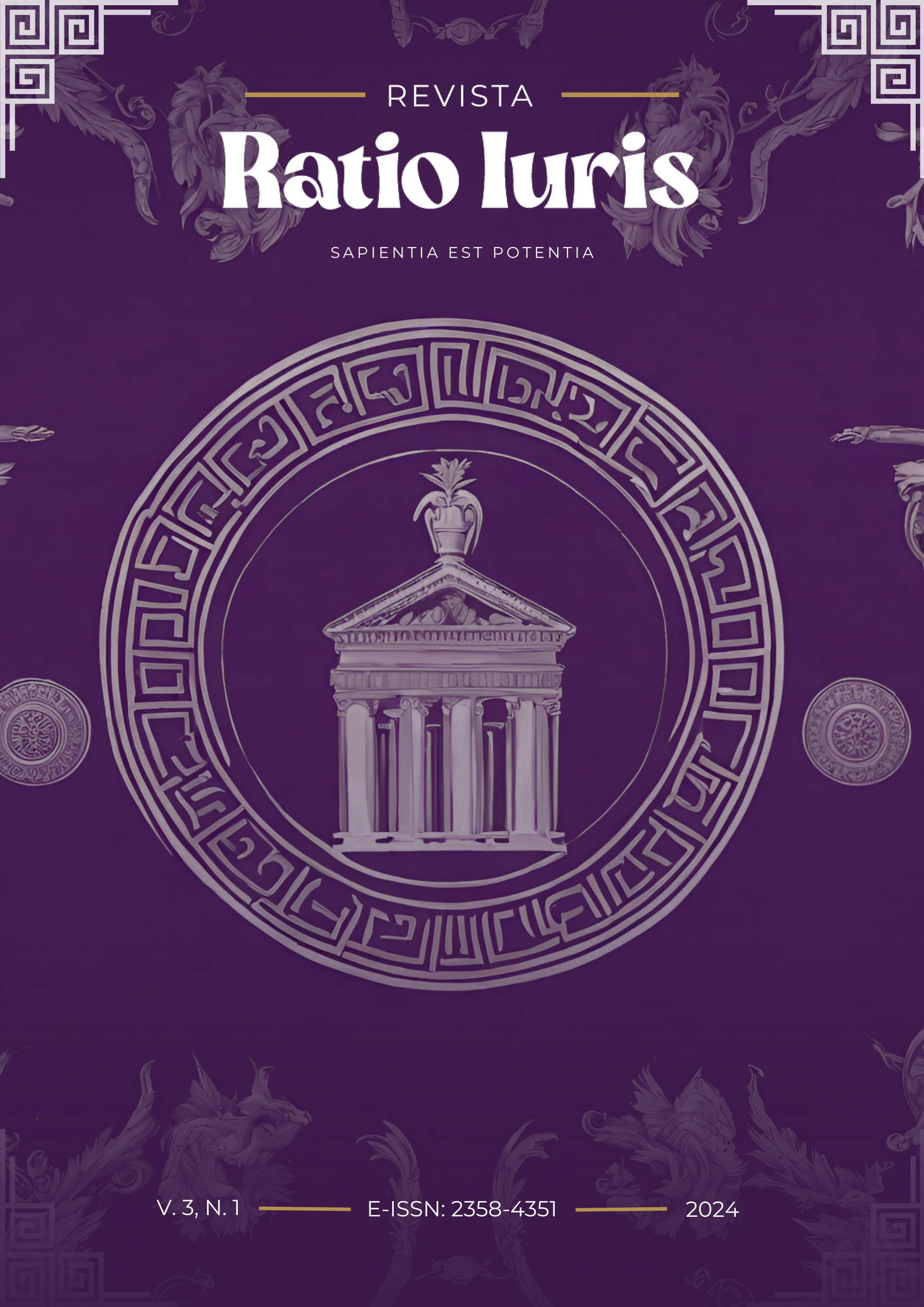O PRINCÍPIO DA DIGNIDADE DA PESSOA HUMANA COMO NORTEADOR DO ORDENAMENTO JURÍDICO BRASILEIRO
Keywords:
Human dignity, constitution, Civil law, Legal SystemAbstract
For the Brazilian legal system, The dignity of the human person is a theme often used to analyze various judicial cases. It is known that this principle is expressed in the Brazilian Federal Constitution of 1988, as well as in international treaties, however, its broad and imprecise concept has always been the subject of discussion about its usability. Thus, this article seeks to elucidate the concept of dignity and the generating factor that identifies it as an existential minimum and the guide of the national legislative and jurisdictional process, connected to the principle of autonomy and the conceptualization of the maximum norm. Initially the text explains how the idealization dignity of the human person was constructed, forthwith it’s appearance in the constitution and importance, in order to make possible to discuss the ambiguity of the interpretation, so finally the application in Brazil as in real cases could be possible on the subsequents sections. In conclusion, the dignity of the human person translates in the search for equality, respecting the human integrity, and that’s why it must be the starting point for search the common good.
Downloads
References
ALEXANDRINO, Marcelo; PAULO, Vicente. Direito Constitucional Descomplicado I - 14. ed. - Rio de Janeiro: Forense; São Paulo: MÉTODO, 2015.
AQUINO. Suma de Teologia. IX volumes. São Paulo: Loyola, 2005.
ARISTÓTELES. Ética a Nicômaco. Coleção: Os pensadores. São Paulo: Nova Cultural, 1987.
BRASIL. Supremo Tribunal Federal. Acórdão na Medida Cautelar em Arguição de Descumprimento de Preceito Fundamental n. 45. Relator (a): Min. CELSO DE MELLO. Julgamento: 29/04/2004. Relator: Celso de Mello.
DECLARAÇÃO DOS DIREITOS DO HOMEM E DO CIDADÃO, 1789. Universidade de São Paulo: Biblioteca Virtual de Direitos Humanos, 2015. Disponível em: <http://www.direitoshumanos.usp.br/index.php/Documentos-anteriores-%C3%A0-cria%C3%A7%C3%A3o-da-Sociedade-das-Na%C3%A7%C3%B5es-at%C3%A9-1919/declaracao-de-direitos-do-homem-e-do-cidadao-1789.html>. Acesso em: 7 dez. 2023.
DECLARAÇÃO UNIVERSAL DOS DIREITOS HUMANOS. Rio de Janeiro: UNIC, 2009 [1948]. Disponível em: <http://www.dudh.org.br/wp-content/uploads/2014/12/dudh.pdf>. Acesso em: 7 dez. 2023.
DOS SANTOS, Mário Ferreira. Dicionário de Filosofia e Ciências Culturais, Ed Maltese, 1963.
FREDIE DIDIER JR. Curso de Direito Processual Civil. 18. ed. Salvador: JusPodivm, 2016, v. 1.
FRIAS, Lincoln; LOPES, Nairo. Considerações sobre o conceito de dignidade humana. Revista Direito Gv, [S.L.], v. 11, n. 2, p. 649-670, dez. 2015. FapUNIFESP (SciELO). DOI: 10.1590/1808-2432201528.
KANT, Immanuel. Fundamentação da metafísica dos costumes. 1ª ed. Lisboa: edições 70. 2007.
KELSEN, Hans. Teoria Pura do Direito. 6ª ed. São Paulo: Martins Fontes, 1998.
REALE, Miguel. Lições preliminares de direito. 24. ed. São Paulo: Saraiva, 1998.
______, ______. Visão geral do novo Código Civil. Revista da EMERJ, v. fe/jun. 2002, n. esp., p. 38-44, 2002. Tradução.
RODRIGUES, Lisia Carla Vieira. O Código Civil de 2002: princípios básicos e cláusulas gerais. Revista da Escola da Magistratura do Estado do Rio de Janeiro, Rio de Janeiro, v. 1, p. 179-194, 2013. Disponível em: <https://www.emerj.tjrj.jus.br/serieaperfeicoamentodemagistrados/paginas/series/13/volumeI/10anos docodigocivil_179.pdf>. Acesso em: 10 dez. 2023.
SILVA, Virgílio Afonso da. Direito constitucional brasileiro. São Paulo: Edusp. Acesso em: 10 dez. 2023.
Downloads
Published
How to Cite
Issue
Section
License
Copyright (c) 2024 Revista Ratio Iuris

This work is licensed under a Creative Commons Attribution-NonCommercial-NoDerivatives 4.0 International License.





